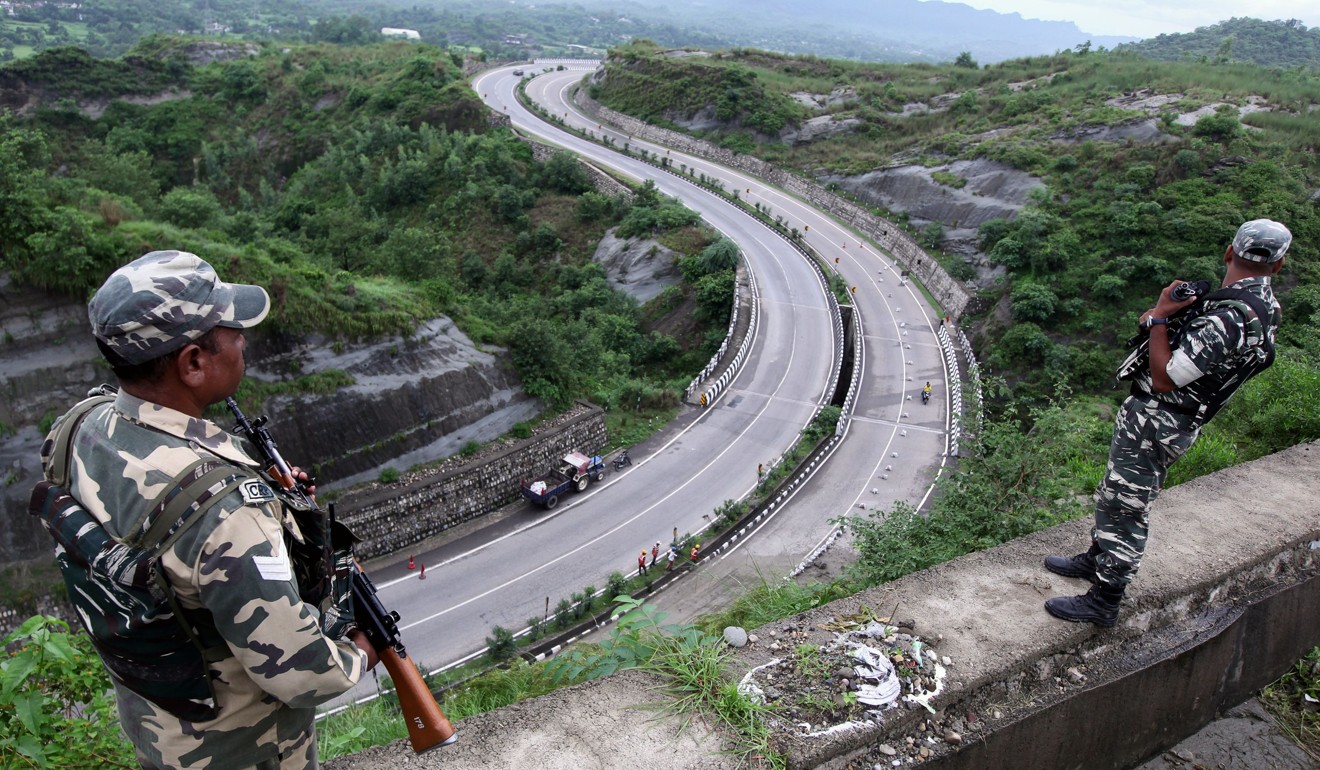
Why China may want to play down its reaction to India’s actions in Kashmir
- While Beijing has supported its long-term ally Pakistan over the decision to revoke Jammu and Kashmir’s special status, it has so far been relatively restrained, writes Mohan Guruswamy
- India’s insistence that this is purely an internal matter has strong parallels with China’s stance on Tibet, Xinjiang and Hong Kong
At a time when most of the major players in the world and region have either supported or ignored India’s recent actions relating to the troubled state of Jammu and Kashmir, China has stayed true to form by backing Pakistan.
Beijing has now formally asked for “closed consultations” in the UN Security Council to discuss India’s decision to revoke the state’s special status after Pakistan, a long-term ally of China, wrote to Poland, the current council president, about the issue.
The matter will no doubt be discussed, but the mood in New Delhi is quite sanguine and India can be assured of the support of more than one of the permanent members of the Security Council, which can use their veto powers.
Nor is the shadow cast by Kashmir over Sino-Indian relations likely to be too large.
Soon after the abrogation of Article 370 of the Indian constitution, which granted the state special status, the Indian Foreign Minister Subrahmanyam Jaishankar visited Beijing.
Many international observers, and some Indian ones too, assumed that he had rushed to the Chinese capital to reassure the commissars and seek their forbearance. But it was nothing of that sort. Jaishankar’s visit to Beijing was a long-scheduled one and meetings between high-level Indian and Chinese officials are now fairly routine and regular.
While Chinese officials did express some misgivings about India unilaterally changing the status of a territory on its borders – one where Beijing and New Delhi have been squabbling over their respective frontiers for as long as India and Pakistan have – that was it.
Pakistanis in Hong Kong condemn move to Kashmir of autonomy
The Ladakh region of Kashmir, which will be separated from the rest of the territory to become a directly administered union territory, has a long and undemarcated Line of Actual Control (LAC), across which large Indian and Chinese formations keep a wary watch over each other.
India believes that China is in wrongful occupation of the high altitude desert plateau of Aksai Chin. But as with the Line of Control that divides the Pakistani and Indian-controlled parts of Kashmir, India is fairly comfortable with the LAC with China.

In recent years, there has been some physical jostling between Indian and Chinese troops in the region, but matters have always been restrained by quick and active interventions from senior military commanders.
India had been waiting for the Chinese reaction with a little apprehension, but those fears were allayed by the expected but muted Chinese reaction.
There are also areas when Indian and Chinese interests coincide.
For instance, there is a general acceptance in India that US President Donald Trump has provoked an untimely and unhealthy spat with China over the huge trade deficit that exists between the two countries.
Moreover, the US has trade deficits will all but four countries and the rest of the world – particularly recently developed and developing countries such as China, India, and the Asean nations – are to a great extent dependent on US profligacy for their growth.
While India has not spoken aloud on this, it has generally been supportive of those countries, such as China and even Iran, that have directly borne the brunt of Trump’s behaviour.
Over the years, India and China have both acted unilaterally in places such as Tibet, Xinjiang and Jammu and Kashmir.
Indian PM Narendra Modi insists Kashmir decision will be ‘big inspiration’ despite backlash
New Delhi believes it is taking decisive steps to contain the “Kashmir dispute” to the Muslim majority area by separating Buddhist-majority Ladakh – and possibly the mainly Hindu Jammu region in future – from the current autonomous state.
And from its perspective the message to China is clear: there will never be an independent or Pakistani Jammu and Kashmir with which China can negotiate a border settlement concerning Aksai Chin.
It also regards it as an internal matter, in the same way that China views Tibet, Xinjiang, and now Hong Kong.

Western media and influences in India have made some effort to rouse Indians, if not the Indian government itself, to take a stance on the three Chinese regions.
But so far the Indian response to reports of mass detention camps in Xinjiang and the Hong Kong protests has been restrained – despite Chinese fears that New Delhi would join Western governments in supporting the demonstrators.
Historically, while India has always been understanding towards Tibetan aspirations, it has taken the stance that the problem is one “between the Tibetan people and the Chinese authorities”.
India hopes that one day the Chinese position on Kashmir will shift from seeing it as a problem between India and Pakistan, to one of being a problem between the “Kashmiri people and the Indian authorities”.
Mohan Guruswamy is a distinguished fellow at the United Service Institution of India in New Delhi
